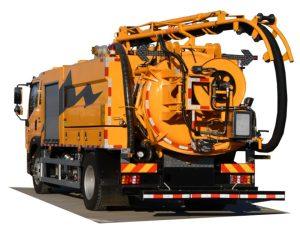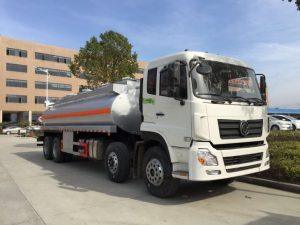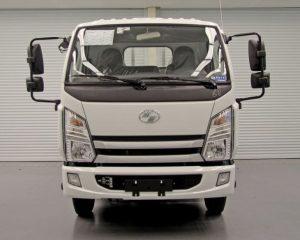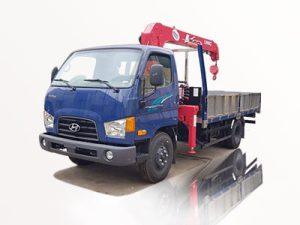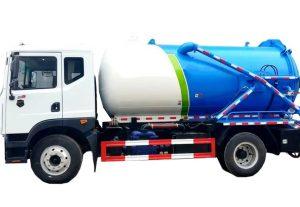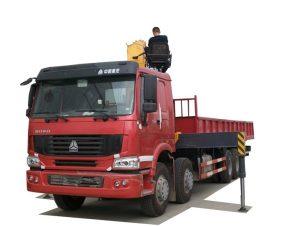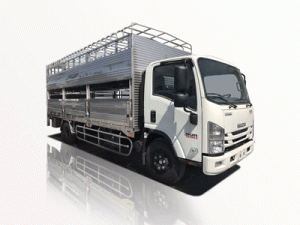Monday to Saturday - 8:00 -17:30
Understanding the Different Types of Trash Trucks
When it comes to waste management, one of the most crucial components is the garbage truck. These vehicles come in various types, each designed for specific functions, making them essential for maintaining cleanliness in our communities. This article delves into the various types of trash trucks, their unique features, and their roles in effective waste management.
1. Overview of Trash Trucks
Trash trucks, also known as garbage trucks, are specialized vehicles used for collecting and transporting waste materials. The advancement of technology has led to the development of different types of trash trucks, each serving a unique purpose. Understanding these types is vital for waste management professionals, city planners, and citizens concerned about sustainability.
2. Types of Trash Trucks
2.1 Front-Load Garbage Trucks
Front-load garbage trucks are widely used in commercial waste collection. They are characterized by their large, rectangular containers and a mechanical arm that lifts and tips bins into the truck.
Key Features:
- Mechanical arm for easy lifting.
- Large capacity ideal for businesses.
- Suitable for urban areas with high waste generation.
Practical Example:
Many restaurants and shopping centers use front-load garbage trucks for waste collection. Their ability to handle large volumes minimizes the number of pickups needed.
2.2 Rear-Load Garbage Trucks
Rear-load garbage trucks are among the most commonly used trucks for residential waste collection. They feature a rear door that opens for loading trash manually or using a mechanical lift.
Key Features:
- Versatile design for residential and commercial use.
- Can accommodate different waste types.
- Manual or automated loading options.
Practical Example:
Municipalities often employ rear-load trucks for neighborhood waste collection. They can handle curbside pickups efficiently, ensuring all residents’ waste is collected.
2.3 Side-Load Garbage Trucks
Side-load garbage trucks are becoming increasingly popular for residential garbage collection due to their efficiency and reduced labor costs. They have a side-mounted arm that picks up waste containers.
Key Features:
- Automated side-loading system.
- Designed for residential routes with multiple stops.
- Reduces the need for workers to leave the vehicle.
Practical Example:
A city may employ side-loaders for quick and efficient pickups in neighborhoods, especially in areas where streets are narrow or congested.
2.4 Automated Garbage Trucks
Automated garbage trucks are equipped with advanced technology enabling them to operate without much human intervention. They can sort and compact waste, making them a modern choice for waste management.
Key Features:
- Minimal operator involvement required.
- Equipped with sensors for route optimization.
- Can have recycling or compost collection capabilities.
Practical Example:
High-tech cities may invest in automated trucks to reduce operational costs and improve the efficiency of waste collection services.
2.5 Recycling Trucks
Recycling trucks are specially designed to collect recyclable materials separately from general trash. They play a crucial role in promoting environmental sustainability.
Key Features:
- Compartmentalized design for separating different materials.
- Promotes recycling initiatives.
- Often used in conjunction with general waste collection trucks.
Practical Example:
Many municipalities run separate recycling trucks to ensure that materials like paper and plastics are processed correctly, encouraging residents to recycle more.
2.6 Transfer Trucks
Transfer trucks are used to transport waste from a collection point to a landfill or recycling facility. They are crucial for long-distance waste transportation.
Key Features:
- High capacity for bulk waste transportation.
- Custom-designed for efficiency over long distances.
- Connects local refuse collection with landfill sites.
Practical Example:
Waste management companies often use transfer trucks to move waste from collection centers to disposal facilities, ensuring a smooth operation and reducing landfill traffic.
2.7 Hook Lift Trucks
Hook lift trucks are versatile vehicles capable of transporting different types of containers, which makes them suitable for various waste management tasks.
Key Features:
- Interchangeable containers for different waste types.
- Flexibility for both residential and commercial use.
- Easy loading and unloading with a hook system.
Practical Example:
Construction companies may use hook lift trucks to switch between debris containers, recycling bins, and regular waste containers based on their needs.
2.8 Vacuum Trucks
Vacuum trucks utilize suction to collect and transport liquid waste and sludge. They are essential in managing waste that can’t be collected using standard trucks.
Key Features:
- Effective in extracting waste from difficult-to-access areas.
- Used for both industrial and municipal waste management.
- Operates with a tank to store liquid waste.
Practical Example:
Municipalities often hire vacuum trucks for stormwater management or to clean sewer lines, ensuring the infrastructure remains functional and clear.
2.9 Packer Trucks
Packer trucks are designed to compress waste, allowing them to store more material than standard trucks. They are essential for maximizing payload and minimizing trips.
Key Features:
- Compaction mechanism to reduce waste volume.
- High-capacity design for extensive routes.
- Efficient in reducing landfill trips and emissions.
Practical Example:
Cities may utilize packer trucks in residential areas to ensure efficient waste collection and to manage the high volume of trash produced in urban settings.
3. Choosing the Right Type of Trash Truck
Selecting the appropriate type of trash truck depends on numerous factors, including the type of waste to be collected, the volume of waste, and the specific requirements of the area. Here are some key considerations:
3.1 Waste Type
Identifying whether the waste is municipal, industrial, or recycling is essential in choosing the right truck. Different trucks cater to various waste streams.
3.2 Volume of Waste
The anticipated volume of waste will dictate the size and capacity of the truck needed. Larger capacities may be beneficial for areas generating vast amounts of waste regularly.
3.3 Geographic Considerations
The layout of the area, including factors like road width and accessibility, plays a critical role in determining which type of truck can operate efficiently without vehicle damage or delays.
4. Innovations in Trash Truck Technology
The waste management industry has seen significant technological advancements in recent years. New technologies are enhancing truck efficiency, safety, and environmental impact. Some key innovations include:
4.1 Electric and Hybrid Trucks
With rising environmental concerns, electric and hybrid trash trucks have emerged as eco-friendly alternatives, reducing greenhouse gas emissions and operational costs.
4.2 Smart Sensors
Modern trash trucks are equipped with GPS and sensors that optimize routes for efficient pickups and reduce fuel consumption.
4.3 Automated Sorting Mechanisms
Some trucks can automatically sort waste, differentiating between recyclables and general trash, thus enhancing overall waste management effectiveness.
5. Maintenance of Trash Trucks
Proper maintenance of trash trucks is critical for safety and the longevity of the vehicle. Some essential maintenance practices include:
5.1 Regular Inspections
Frequent inspections help identify issues before they become serious problems. Check brakes, tires, hydraulic systems, and compaction mechanisms.
5.2 Cleaning and Sanitizing
Cleaning and sanitizing the interior and exterior of trash trucks prevent odors and the build-up of contaminants.
5.3 Staff Training
Ensure that operators are trained in safe handling procedures and proper operational techniques for the specific type of truck they are using.
6. The Environmental Impact of Trash Trucks
Trash trucks significantly affect our environment and community cleanliness. Responsible waste collection can lead to numerous environmental benefits.
6.1 Reducing Landfill Waste
Efficient waste management practices help reduce the volume of waste sent to landfills, promoting recycling and composting initiatives.
6.2 Lower Emissions
Using newer technologies, such as electric and hybrid trucks, can dramatically lower emissions from waste collection operations.
6.3 Community Cleanliness
Regular waste collection through different types of trucks ensures that communities remain clean and healthy for residents, minimizing public health risks.
7. FAQs About Trash Trucks
7.1 What is the average lifespan of a trash truck?
The average lifespan of a trash truck ranges from 7 to 15 years, depending on maintenance, usage, and operating conditions.
7.2 How do drivers operate garbage trucks safely?
Drivers are trained in safety measures, including using mirrors for visibility, adhering to speed limits, and following proper loading and unloading procedures.
7.3 Can recycling trucks handle hazardous waste?
No, recycling trucks are designed for recyclable materials only. Hazardous waste requires specialized removal and transportation methods.
7.4 What factors affect the cost of trash trucks?
Factors include the type of truck, size, features (like automation), and technological enhancements that can raise operational efficiency.
7.5 Are there any government regulations on garbage trucks?
Yes, there are various local, state, and federal regulations regarding emissions, safety standards, and operational practices of trash trucks.
7.6 How many types of garbage trucks are there?
There are numerous types of garbage trucks, including front-load, rear-load, side-load, automated, recycling, vacuum, and more, tailored to specific waste collection needs.
8. Conclusion
Understanding the various types of trash trucks is essential for efficient waste management. Each type is designed to handle specific waste requirements while contributing to sustainability efforts in our communities. Knowledge of these trucks helps in ensuring cleanliness and promotes a better understanding of waste management processes.


